The Hamas-Israel war is dividing college campuses
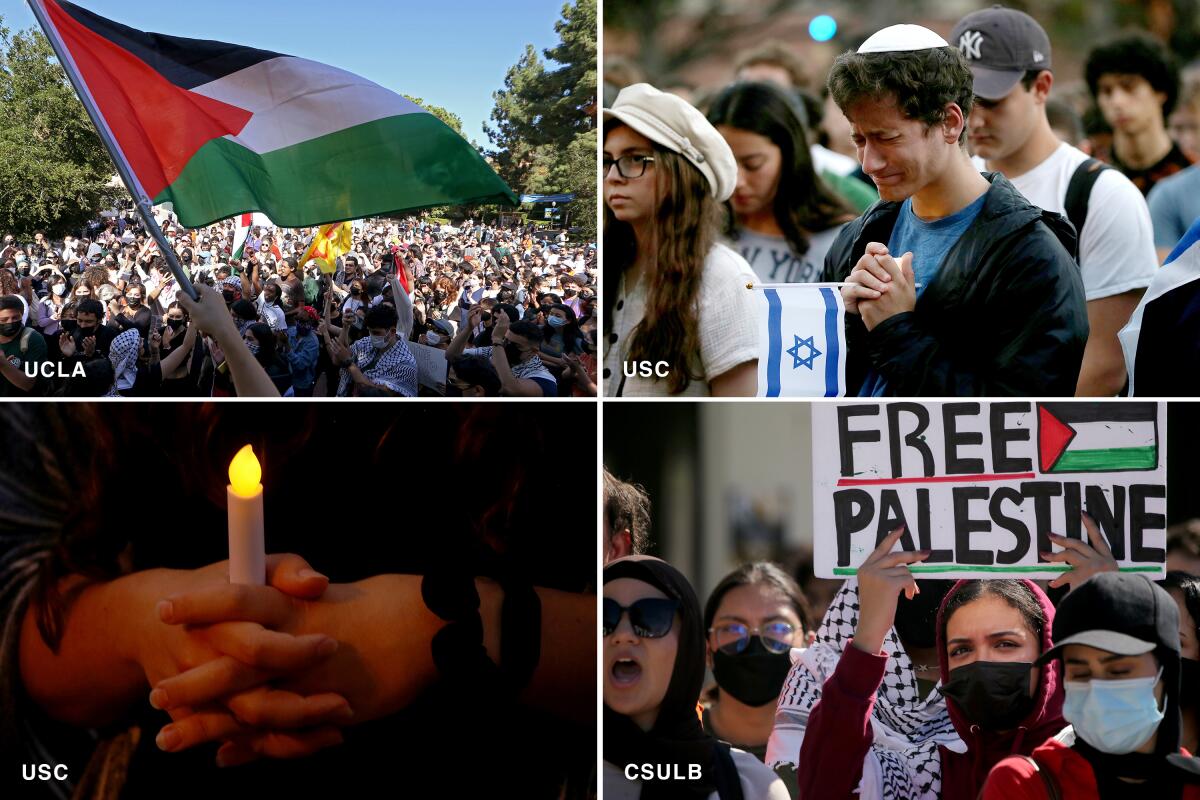
Good morning. It’s Monday, Oct. 16. Here’s what you need to know to start your day.
- Israel-Hamas conflict divides college campuses
- Can Laphonza Butler win over the public?
- 8 great places to learn to sew in L.A.
- And here’s today’s e-newspaper
Sign up for Essential California
The most important California stories and recommendations in your inbox every morning.
You may occasionally receive promotional content from the Los Angeles Times.
The Hamas-Israel violence conflict is dividing college campuses
Tense demonstrations unfolded across California’s college campuses all week after Hamas militants killed more than 1,400 Israelis, and Israel declared war, laid siege to the Gaza Strip and flattened neighborhoods with bombs. The death toll in Gaza has topped 2,600 and is growing fast.
“The already yawning gulf between students supporting Israelis or Palestinians widened,” Times reporters Teresa Watanabe, Priscella Vega, Debbie Truong and Jenny Gold wrote in a recent story chronicling the campus conflicts.
Students and faculty at UCLA, UC Berkeley, Stanford, USC and Cal State Long Beach told them the climate on their campuses has created a chilling effect on speech and efforts to discuss the conflict civilly. My colleagues wrote:
While universities are supposed to be bastions of open inquiry, academic freedom and robust debate, the escalating Israel-Hamas war has elevated campus tensions across the country this week, underscoring how much those values have withered as polarization hardens amid the social media age.
Stanford was among the universities that made headlines in the last week. Campus leaders wrote that some Palestinian students reported receiving threatening emails and phone calls, while some Jewish students have voiced concerns about antisemitism on the campus.
The school is also investigating allegations that an instructor downplayed the Holocaust in class and grouped students into “colonized or colonizer groups depending on their family countries of origin,” my colleagues reported.
Officials there have declined to weigh in on the conflict, saying that while Stanford is “unambiguously opposed to all forms of racial, ethnic, or religious hatred,” the university does not take positions on geopolitical issues and news events.”
“This is grounded in a principled belief that the appropriate role of university administrators in relation to geopolitical events is not to take positions or issue statements, but to create an environment in which faculty and students are free to develop and exchange ideas free from institutional orthodoxy,” administrators wrote in a recent statement.
At UCLA, two professors who planned an “emergency teach-in on the crisis in Palestine” were met with threats and harassment that led them to hold the event online for safety concerns.
Students across the state expressed fears of being doxxed for expressing viewpoints critical of Israel and worried they’d be labeled antisemitic, similar to what happened to some Harvard students.
With some students grieving lost loved ones, angry over this latest eruption of bloodshed and fearing what’s next — both for the Israeli and Palestinian people overseas and for the people speaking out here in the U.S. — some are finding it difficult to find a peaceful path forward.
“I’ve spent my whole career trying to build bridges and try to hear from other voices and understand the Palestinian perspective,” ChayaLeah Sufrin, executive director of Beach Hillel, told The Times. “I feel very hopeless about the situation.”
Read more of the Times coverage
- Gaza hospitals near breaking point as U.S. starts evacuating Americans from Israel.
- Israelis and Palestinians confront a terrifying new reality.
- Palestinian Americans stuck in Gaza as all-out Israeli invasion looms.
- As Israel prepares a Gaza invasion that could kill thousands, the U.S. resists publicly calling for restraint.
- The war between Israel and Hamas is testing the Republican Party’s isolationist shift.
Today’s top stories
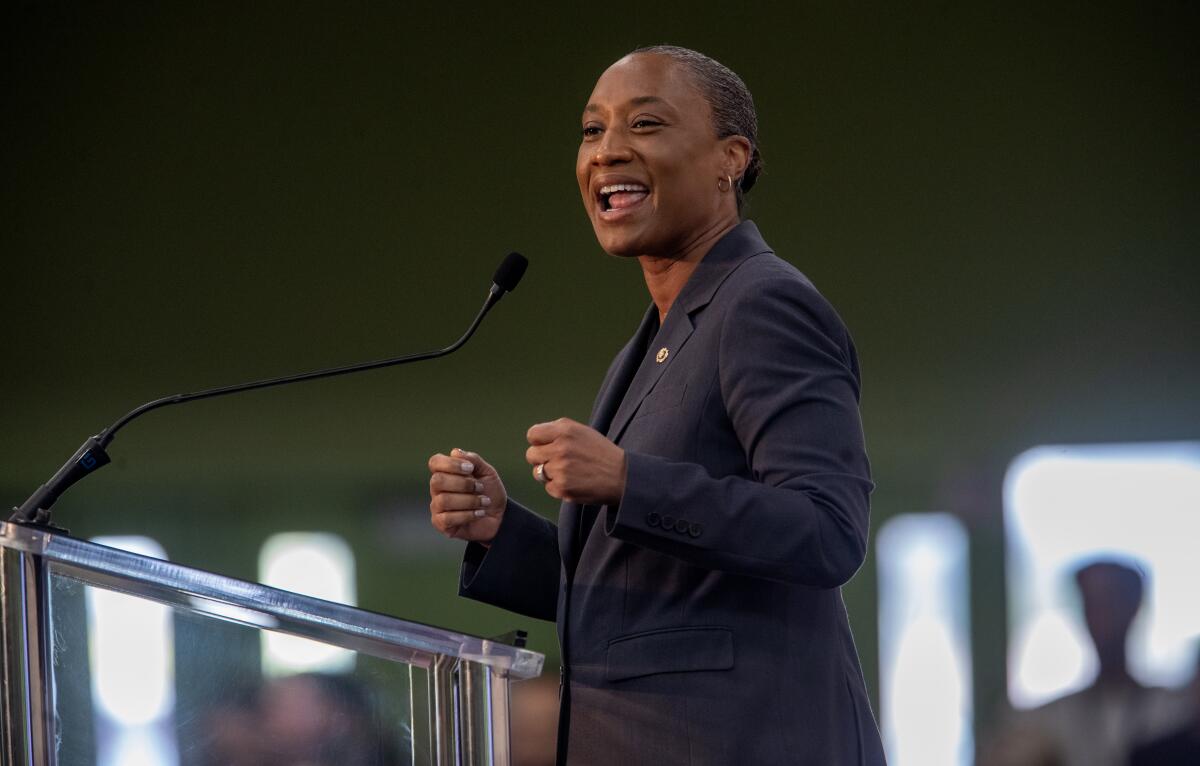
- Laphonza Butler knows how to amass quiet power. Will she win in the public arena?
The latest from Sacramento
- With actions on drug laws, mental health and labor, Gov. Gavin Newsom moves toward the center in his second term.
- California healthcare workers to get $25 an hour after Newsom approves a historic minimum wage.
- A new law allows a homeowner to sell ADUs like condos, boosting homeownership.
- Campsite reservations at California state parks can be hard to get. Will a new law help?
Education
- How conservatives are waging a coordinated, anti-LGBTQ+ culture war in California schools.
- New law will allow some Mexican residents to pay in-state tuition at California community colleges.
More big stories
- Suzanne Somers, ‘Three’s Company’ and ‘Step by Step’ star, dead at 76.
- Six years, a trial, and a firing. But no end to a professor’s sexual harassment fight.
- Environmentalists are turning a rugged stretch of California coast into a lab for conservation.
- Death Valley National Park has reopened. The popular desert park and State Route 190 have been fully closed since Aug. 20.
- An investment group vowed to restore this San Pedro landmark. Neighbors are growing skeptical.
- Peeps to remove a chemical included in California’s new ban on ‘toxic’ food additives.
Get unlimited access to the Los Angeles Times. Subscribe here.
Commentary and opinions
- George Skelton: Californians are in a sour mood, which should be good news for Republicans. It’s not.
- LZ Granderson: U.S. policy basically discourages having kids. Now our economy is paying the price.
- Steve Lopez: For older adults living in their cars, sleeping in a parking lot isn’t the answer, but ‘it’s a buffer. It’s a sanctuary, almost. A way to gather your wits and maybe your resources.’
- Opinion: The true crime story of the Osage Nation would take a century to tell.
- Carolina A. Miranda: A show in Palm Springs surveys Mexican graphic design, but overlooks the border.
Today’s great reads
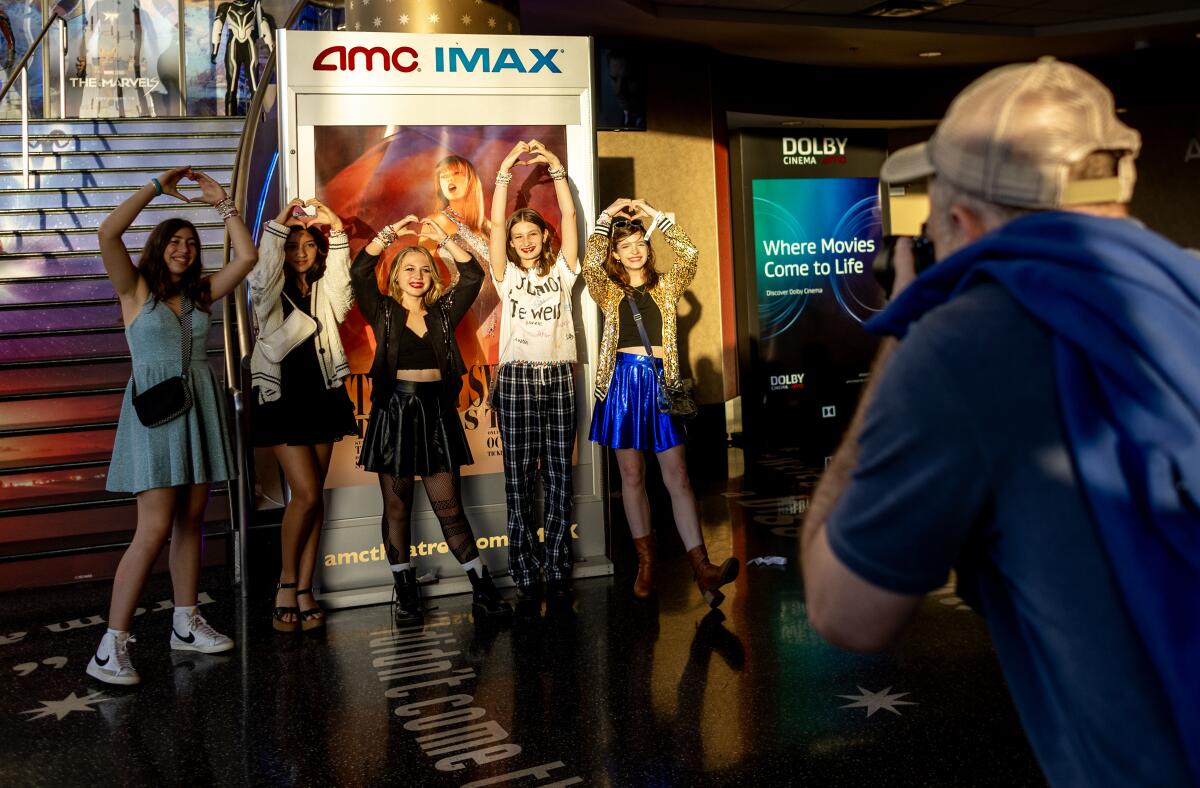
L.A. fans go all out for Taylor Swift movie — and reveal how much they’ve spent on her. Our photo and video teams went to the movies Friday to capture L.A. fans’ excitement for the “Eras Tour” concert film — and learn what it costs to be a Swiftie.
Other great reads
- Latinidad is inspiring these nail artists’ intricate designs.
- Disney turns 100. A timeline of key events. Plus, here are seven ways Walt’s company forever changed entertainment.
- Why a trainer with 527 violations is still racing horses at Santa Anita.
- How Ziwe became your ‘Black Friend,’ and why she’d rather be loved than feared.
How can we make this newsletter more useful? Send comments to [email protected].
For your downtime
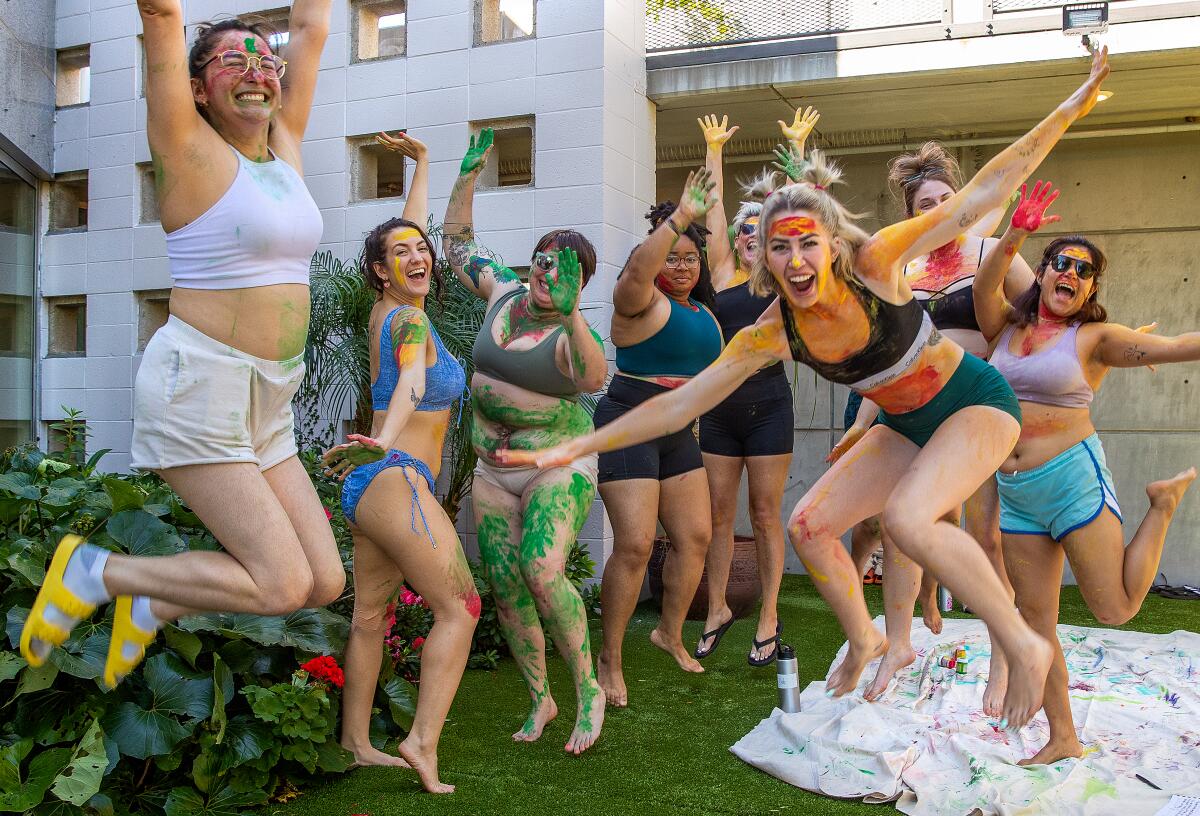
Going out
- 😎 Inside a Malibu wellness retreat for ‘bad bitches’ doing all the things.
- 🪡 8 great places to learn to sew in L.A.
- 🧑🍳 The undefinable cooking at Poltergeist will haunt you.
Staying in
- 📺 Ken Burns’ new PBS documentary ‘The American Buffalo,’ looks at how our national mammal was on the brink of extinction.
- 🏈 Chargers-Cowboys matchups: How to watch, matchups and prediction.
- 🧑🍳 Here’s a recipe for California Heat Chile Oil.
- ✏️ Get our free daily crossword puzzle, sudoku, word search and arcade games.
And finally ... a great photo
Show us your favorite place in California! Send us photos you have taken of spots in California that are special — natural or human-made — and tell us why they’re important to you.
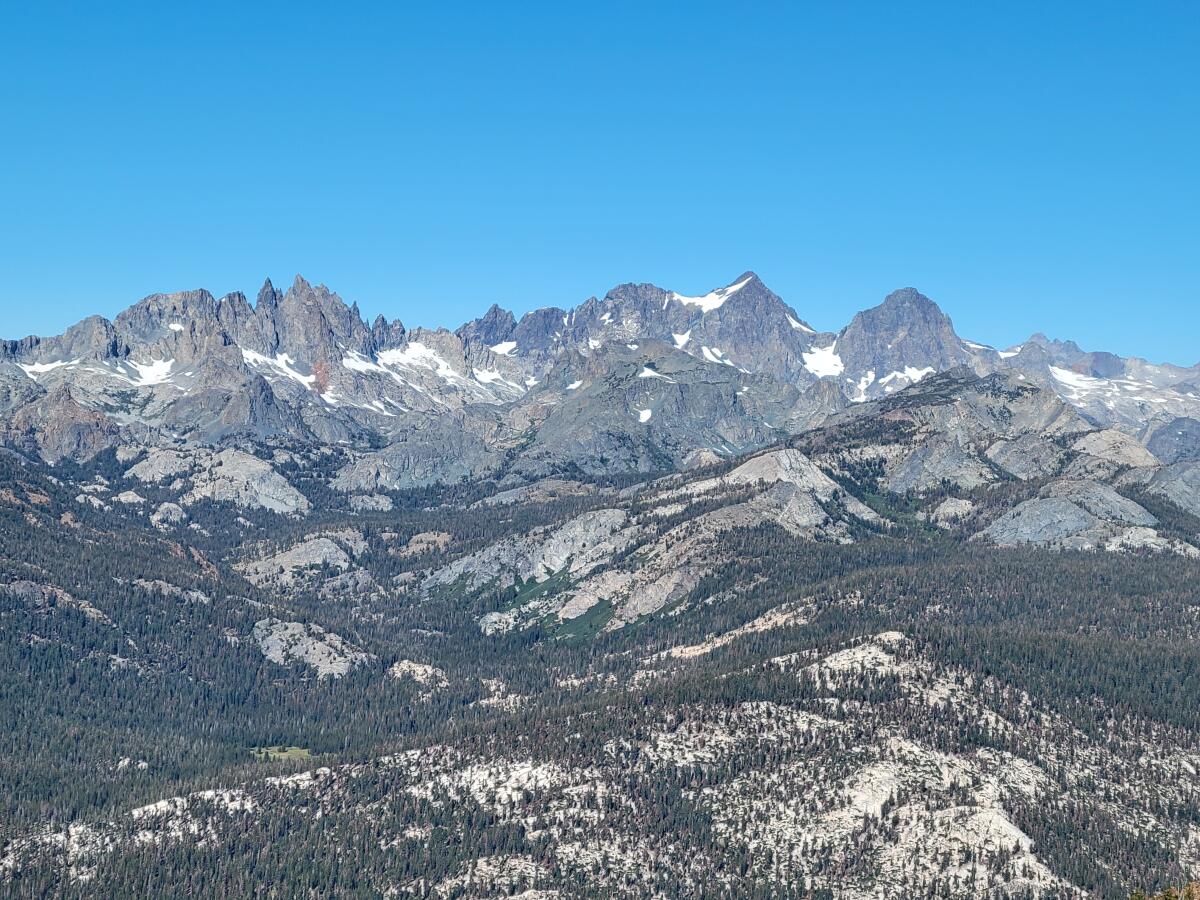
Today’s great photo is from Jen Hankins of Newbury Park: The Minarets in Mammoth Lakes. Jen writes:
Not only does it distinguish Mammoth from all other peaks in the Eastern Sierra, but it provides a breathtaking view year round.
Have a great day, from the Essential California team
Ryan Fonseca, reporter
Elvia Limón, multiplatform editor
Karim Doumar, head of newsletters
Check our top stories, topics and the latest articles on latimes.com.
Sign up for Essential California
The most important California stories and recommendations in your inbox every morning.
You may occasionally receive promotional content from the Los Angeles Times.




